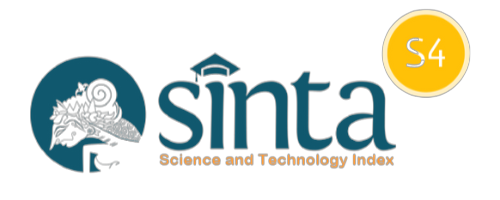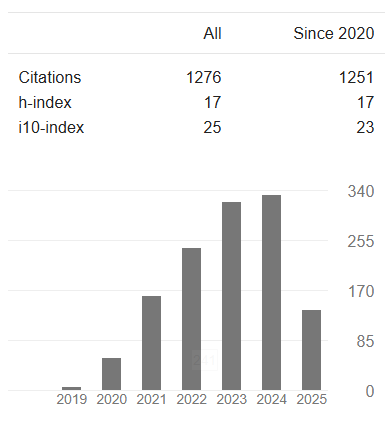Optimizing ICMS Strategies for E-Commerce in Brazil: Tax Benefits and Profitability Insight
DOI:
https://doi.org/10.14421/EkBis.2024.8.2.2153Keywords:
ICMS, E-Commerce, Tax Burden, Tax BenefitAbstract
This study aimed to analyze the ICMS in the interstate operations of e-commerce companies, targeting non-taxpayers. The objective was to identify more economically advantageous strategies that would remain compliant with the tax legislation. The economic implications are evident in the use of tax benefits by various states, seeking to attract large companies to their jurisdictions through these incentives. A case study was conducted at a medium-sized company that has experienced significant growth in recent years, driven by both operational expansion and the rise of e-commerce on digital platforms. To carry out this case study, information from the company's tax documents was used, including verification of files and tax ledgers, and calculation of taxes and other reports relevant to the study. The analysis revealed that ICMS has a significant effect on the company's operations, necessitating the implementation of strategies to efficiently and legally reduce the tax burden. To implement these strategies, this study analyzed the tax benefits offered by specific states within the federation to this particular industry segment. By comparing these benefits to the company's operational values, opportunities to reduce the tax burden and increase profitability can be identified. The study demonstrated the potential for substantial cost savings by considering the company's location as the primary focus. These savings could range from 41.9% to 72.5%.
Downloads
References
Bahia. (2000). State Decree No. 7.799, of May 9, 2000. Official State Gazette. Provides for tax treatment in the operations it indicates and makes other provisions. Bahia, Brazil.
Brazil. (1975). Complementary Law No. 24, of January 7, 1975. Federal Official Gazette. Provides for agreements to grant exemptions from the tax on operations relating to the circulation of goods and makes other provisions. Brasília, Brazil.
Brazil. (1988). Federal Constitution of the Federative Republic of Brazil of 1988. Federal Official Gazette. Brasília, Brazil.
Brazil. (1996). Complementary Law No. 87 of September 13, 1996 (Kandir Law). Provides for state and Federal District taxes on transactions relating to the movement of goods and the provision of interstate and intercity transport and communication services and makes other provisions. Federal Official Gazette. Brasília, Brazil.
Brazil. (2017). ICMS Agreement No. 190, of December 15, 2017. Federal Official Gazette. Provides for the remission of tax credits, constituted or not, arising from exemptions, incentives, and tax or financial-fiscal benefits, relating to the Tax on Operations Relating to the Circulation of Goods and on the Provision of Interstate and Intermunicipal Transport and Communication Services (ICMS). Brasília, Brazil.
Brazil. (2017). Complementary Law No. 160, of August 7, 2017. Federal Official Gazette. Provides for an agreement that allows states and the Federal District to decide on the remission of tax credits, whether or not constituted, arising from exemptions, incentives, and tax or financial-fiscal benefits. Brasília, Brazil.
Campos, C. Z. A. (2013). The incidence of ICMS on interstate operations carried out in e-commerce: A weighted analysis from the perspective of the federal constitution. Federal University of Maranhão, São Luís, Brazil.
Carvalho, P. B. (2012). Fiscal war: Reflections on the granting of benefits under the ICMS. Noeses, São Paulo, SP, Brazil.
Cavalcante, D. L., & Hammoud, M. A. (2019). Interstate ICMS: Changes arising from EC 87/2015 and ICMS Agreement No. 93/2015. Tax and Public Finance Journal - Rtrib, 37–50.
Dagostini, F., & Favoretto, P. (2018). Challenges of implementing channel unification in Brazilian retail: A case study. USP ESALQ, Piracicaba, Brazil.
Espírito Santo. (2016). State Law No. 10.568, of July 26, 2016. Official State Gazette. Establishes measures and mechanisms to protect the state's economy, supporting sectors or segments of the state's economy, in particular to ensure competitiveness and the occupation of market spaces, in the face of tax benefits granted by other federal units. Espírito Santo, Brazil.
Gil, A. C. (2017). How to design research projects (6th ed.). Atlas, São Paulo, SP, Brazil.
Goode, W. J., & Hatt, P. K. (1979). Methods in social research (5th ed.). Companhia Editora Nacional, São Paulo, SP, Brazil.
Moreti, D. (2022). Tax benefits in the taxation of e-commerce and marketplaces. São Paulo, SP, Brazil.
Neiva, A. C. (2022). E-commerce in Brazil: Data from an expanding market. Available at: https://edrone.me/pt/blog/dados-ecommerce-brasil. Accessed October 11, 2022.
Neves, J. (2020). Changes to the ICMS tax on e-commerce: Is it a threat to the recovery of retail? Available at: https://www.ecommercebrasil.com.br/artigos/alteracao-do-icms-no-e-commerce-seria-uma-ameaca-a-retomada-do-varejo/. Accessed October 11, 2022.
Oliveira, D. B., & Botelho, T. R. (2013). The challenge of ICMS taxation in e-commerce. UNIGRAN Legal Journal, 15, 171–191.
Sá, D. K. M. (2017). Analyzing the collection of ICMS from e-commerce from the perspective of EC 87/2015. Federal University of Ceará, Fortaleza, Brazil.
Santa Catarina. (1996). State Law No. 10.297, of December 26, 1996. Official State Gazette. Provides for the Tax on Operations Relating to the Circulation of Goods and on the Provision of Interstate and Intermunicipal Transport and Communication Services (ICMS) and adopts other measures. Santa Catarina, Brazil.
Ventura, M. M. (2007). The case study as a research modality. Ver SOCERJ, 20(5), 383–386.
Downloads
Published
Issue
Section
License
Copyright (c) 2024 Luís Fernando Correia e Almeida, Milena Moscardini Nabelice Guasti Lima

This work is licensed under a Creative Commons Attribution-ShareAlike 4.0 International License.





























 This work is licensed under a
This work is licensed under a 